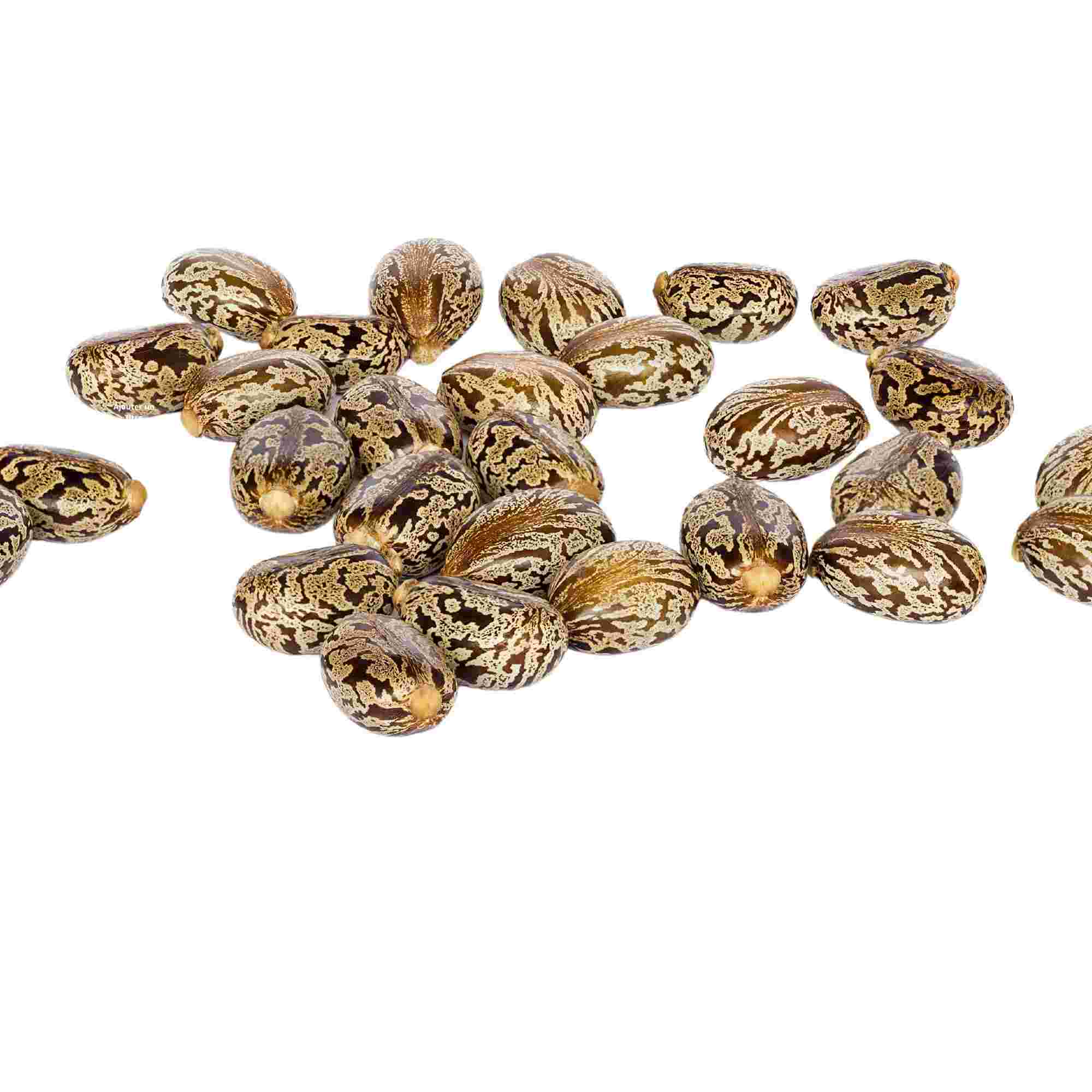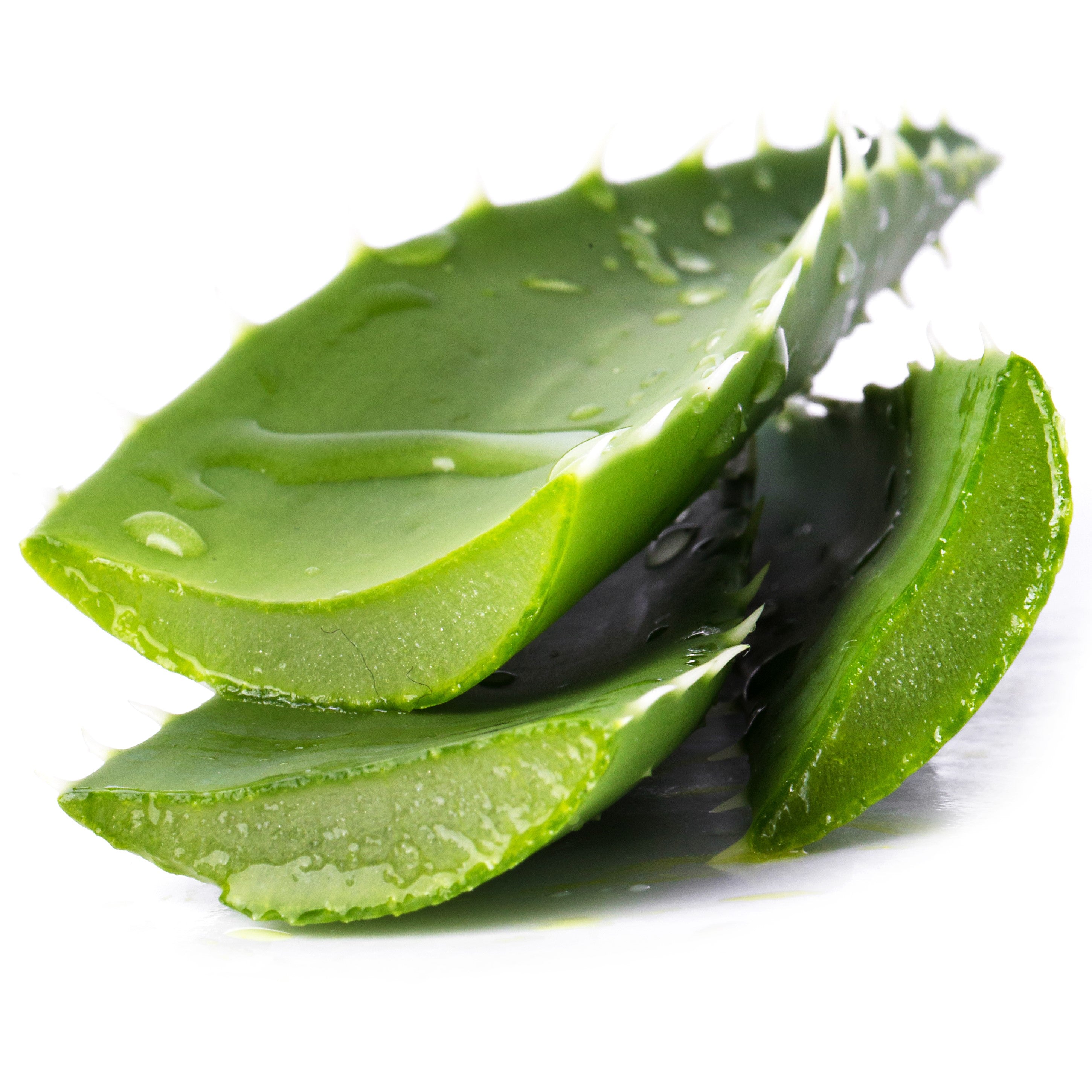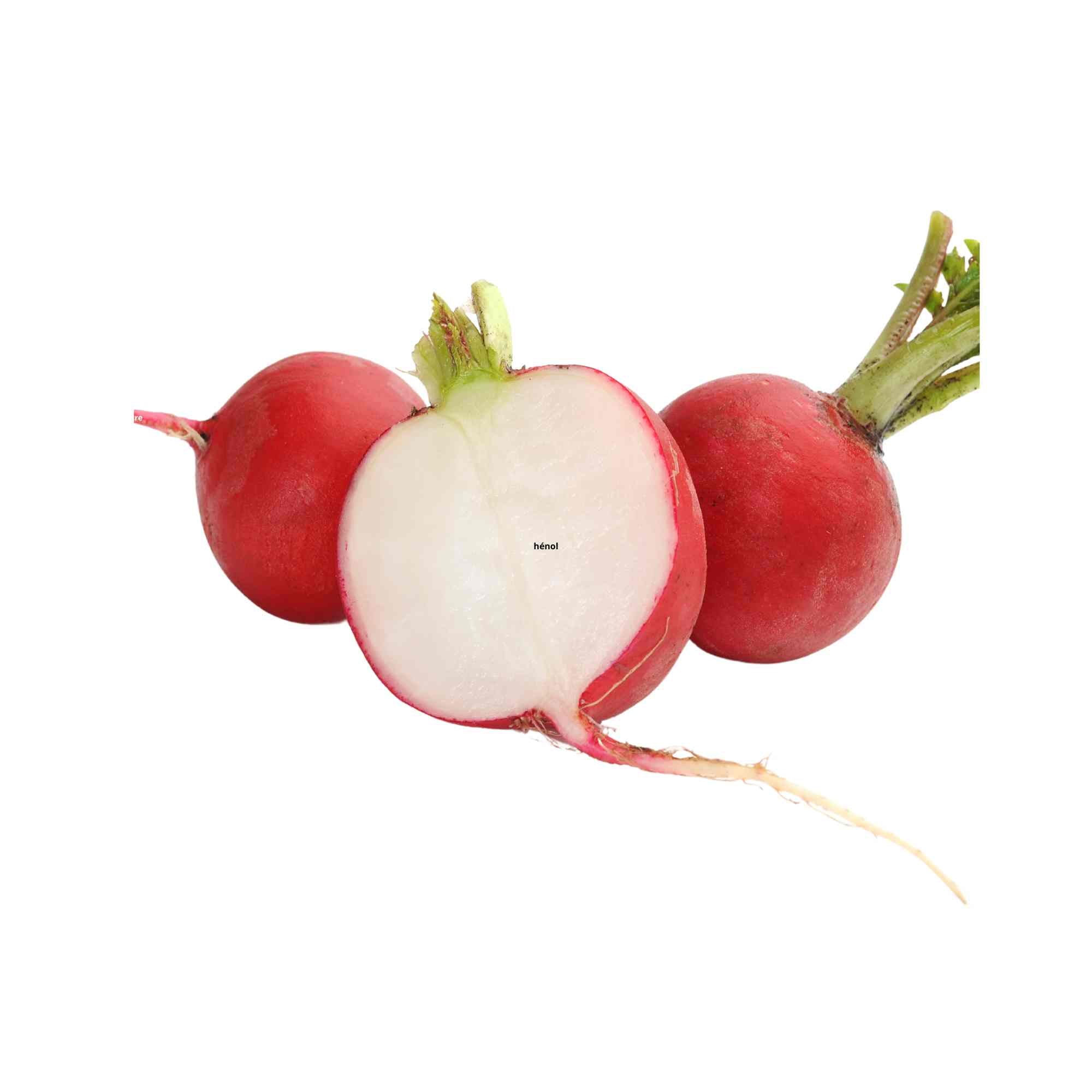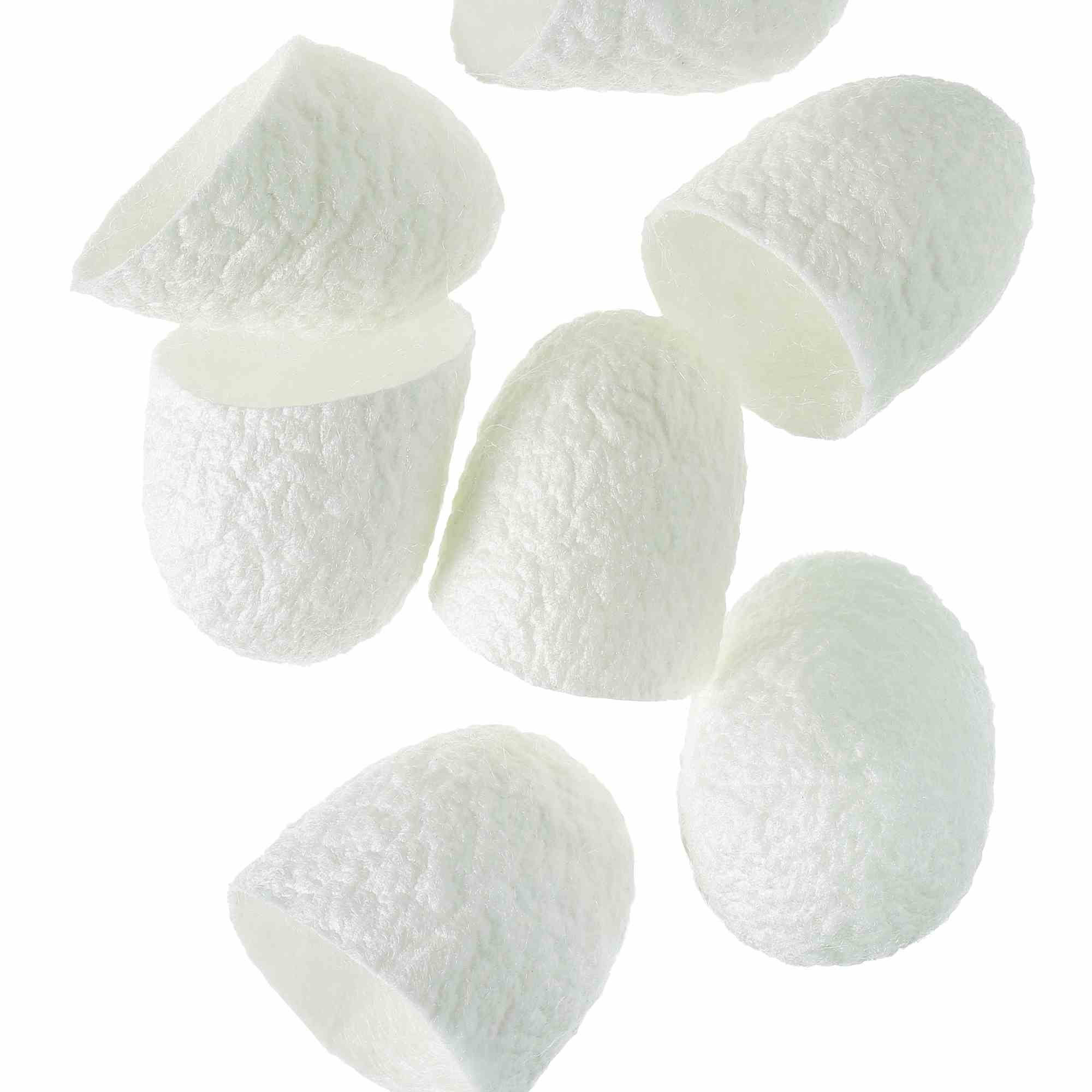Definition of castor oil
Castor oil, obtained from seeds of the plant called Ricinus communis, is a thick and slimy vegetable oil. Known for its richness in ricinoleic acid, this oil is largely used in cosmetics for its soothing, strengthening and moisturizing properties. It is also popular in skincare and haircare.
Actions and benefits
Property of castor oil: hydration and soothing
Castor oil is known for its remarkable moisturizing properties. The rinoleic acid helps to keep skin and hair moisturized, providing a deep and long-lasting hydration. It is ideal for dry skins and scalps, leaving them soft and soothed.
Property of castor oil: strengthening and hair growth
Thanks to its essential nutrients, castor oill fortifies hair follicle, thus stimulating hair and lashes growth. It is particularly efficient for thin and fragile hair, giving them more volume and strength.
Property of castor oil: anti-inflammatory effect
Ricinoleic acid contained in castor oil has anti-inflammatory properties, which help in reducing redness and skin irritations. It makes it an excellent choice to treat minor skin issues and inflammations.
Property of castor oil: antimicrobial properties
Castor oil has antimicrobial effects, helping in preventing skin infections and maintaining a healthy skin. Its actives components inhibit the growth of bacterias and fungus, offering a natural protection to the skin.
Property of castor oil: nourishing and protecting
Rich in essential fatty acids, particularly in omega 6 and omega 9, as well as in vitamin E, castor oil nourishes and protect skin and hair. It reinforces the skin barrier, thus preventing dryness and damages caused by external agressions.
Clinical and scientific studies on castor oil
Several studies have highlighted the benefits of castor oil. A study published in the "Journal of Cosmetic Dermatology" demonstrated that castor oil helps to significantly reduce wrinkles and skin slackening in the infraorbital area. A second study published in the ISRN Pharmacol highlighted the powerful antioxidant and antimicrobial properties of castor oil.
Sourcing of castor oil
Castor oil is principally cultivated in tropical and subtropical areas, especially in India, in Brasil, in China and in Africa. This plant prefers well-drained soils and warm climate. Castor seeds are cultivated, then pressed while they are cold to obtain a pure oil, thus preserving all of its good properties. The bilogical cultures are favored to guarantee a pesticide-free product, respecting the environment.
Anecdotes on castor oil
Castor oil has a long story of use. During ancient Egypt, it was used for its medical and cosmetic virtues. Cleopatra, the famous Queen of Egypt, was using castor oil to brighten her eye contour. Moveover, in the Middle-Ages, it was often used as a natural remedy against various skin issues and to favor hair growth.
Castor oil in our products
We particularly like castor oil for it numerous benefits. It is a key ingredient in our hair care products. Thanks to its strengthening and nourishing properties, it is ideal for dry and damaged hair. We use it to offer our customers natural and efficient products.
Sources :
- Iqbal J, et al. Antioxidant, antimicrobial, and free radical scavenging potential of aerial parts of Periploca aphylla and Ricinus communis. ISRN Pharmacol, (2012).
- Mahdi Parvizi M, et al. Efficacy of castor oil cream in treating infraorbital hyperpigmentation: An exploratory single-arm clinical trial. Journal of Cosmetic Dermatology (2023).




